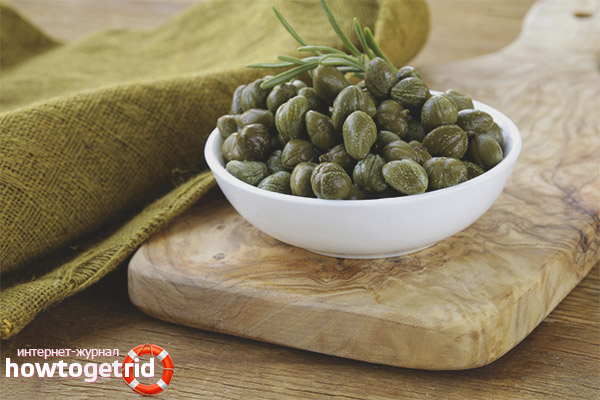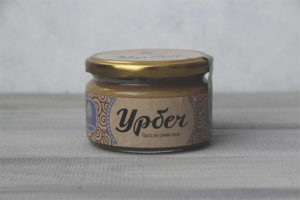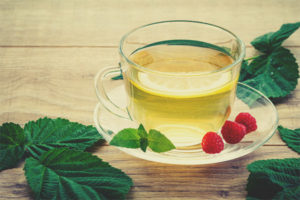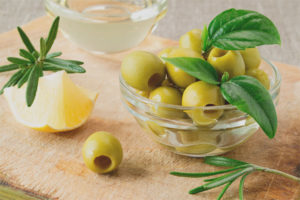The content of the article
Capers are flowering buds that sprout on a stunted caper bush. Some people mistakenly believe that capers are some kind of fruit or belong to a certain variety of berries, but this is not so. Caper are specific, not had time to bloom buds of prickly and possessing a lot of medicinal properties of the bush, which is called caper.
This plant is widely used in medicine during the treatment of various diseases and improve the level of metabolism in the body. It can also be used as one of the main ingredients during cooking.
Uncaped buds of caper are harvested by hand, in the early morning, until they have time to blossom and acquire a shade of pink and white. After the procedure for collecting the buds of this plant, they are thoroughly washed and left to dry in the open sun, usually for 2-3 hours. After drying, the capers are placed in sterile jars and poured with vinegar, to which extra olive oil and a small amount of salt are added. The classification of capers before their sale takes into account the size of their buds. At the same time, it should be noted that the smaller the bud of the plant, the more it is appreciated.
What is this plant useful for?
The caper inflorescence contains a small amount of calories (23 calories per 0.1 kg of product). However, in the buds of this plant there is a huge variety of antioxidants, vitamin complexes and phytonutrients that strengthen the body's immune system and have a positive effect on the state of human health in general.
The caper kidney also contains a substance called rutin. This substance has a beneficial effect on the state of capillaries, contributes to their strengthening. Rutin can also lead to normal circulation of blood in the capillaries and prevent the formation of blood clots in the vessels. In medicine, rutin is sometimes used during the treatment of ailments such as hemorrhoids or varicose veins.
Due to the fact that caper is contained in large quantities in the kidneys of caper, after their intake the amount of LDL cholesterol is significantly reduced. In addition, in the buds of this plant are such substances and vitamin complexes as:
- Quercetin.
- Vitamin A.
- Vitamin K.
- Riboflavin.
Due to the fact that capers contains a substance called quercetin, they are able to exert an antibacterial, anti-inflammatory, and also analgesic effect on the entire body. It should also be noted that caper is considered a plant that has anti-carcinogenic properties and is a very powerful antioxidant.
In most cases, non-blooming caper buds are used in alternative medicine to eliminate pronounced rheumatic pains. Also, the salted buds of this plant are widely used to stimulate human appetite, eliminate the feeling of heaviness in the stomach area and intense flatulence.
The buds and inflorescences of this plant can be actively used in the treatment of severe burns or small wounds. The use of buds allows you to quickly eliminate internal bleeding, as well as diseases that may occur due to malfunctioning of the thyroid gland. It is also actively used during the treatment of various kinds of kidney diseases.
It is worth noting that in the caper buds there are in large quantities such minerals as Cu, Ca, Na and Fe.Often the buds of this plant are used to treat and prevent such an ailment as sclerosis or to strengthen the walls of blood vessels. Essential oils in the kidneys of capers have a beneficial effect on the condition of the skin and hair.
Caper Health Harm
Despite the fact that the plant called capers is completely safe, however, in some cases, you should still limit or stop its use.
- First of all, this plant is not recommended for treatment or eating for women who are pregnant.
- Also, caper buds cannot be used as the main ingredient for the prevention and treatment of diseases for those people who have undergone surgical intervention of varying degrees of complexity. Such a ban is explained by the fact that caper, after its use, begins to actively thin the blood, and for a person who has undergone surgery with surgical intervention, this is fraught with the appearance of bleeding.
- In addition, this plant must be avoided by people who suffer from varying degrees of difficulty with gastritis or a stomach ulcer. Due to the fact that caper contains a large amount of rutin, it can cause an allergy in a person. After all, as you know, rutin is a very strong allergen. Therefore, it is not recommended to use this plant as the main ingredient during cooking or in the treatment and prevention of various kinds of diseases for people prone to severe allergic reactions.
How to use: tips
Marinade is the most suitable way that allows long-term storage of capers. However, as an alternative, instead of marinade, you can use the most ordinary salting. The buds of this plant should be added to different dishes directly at the final stage of their preparation. Due to this, a large number of vitamin complexes, nutrients and essential oil remain in capers.
Capers should not be heavily abused in cooking. Otherwise, with excessive use, vomiting or bloating may occur. To improve appetite, you need to eat a few capers 30 minutes before eating the main meal.
Methods for preparing different dishes using capers
- Caper buds sauce. The recipe for the sauce from this plant is very simple. To do this, take red bell pepper, chop it thinly and fry it in oil, along with well-crushed or crushed garlic. Then you need to take canned tuna, knead it well and add to the fried pepper. At the final stage of cooking, you need to add well chopped basil and 1 tablespoon of capers to pepper and tuna.
- Caper buds salad. To prepare the salad, you need to take one can of tuna and mix it with one well-chopped onion. Then, a small amount of well-chopped arugula and grated parmesan must be added to the resulting mixture. At the final stage of cooking, a few tablespoons of caper, a couple of tablespoons of oil and a few drops of balsamic vinegar are added to the salad.
Video: useful properties of capers











Submit